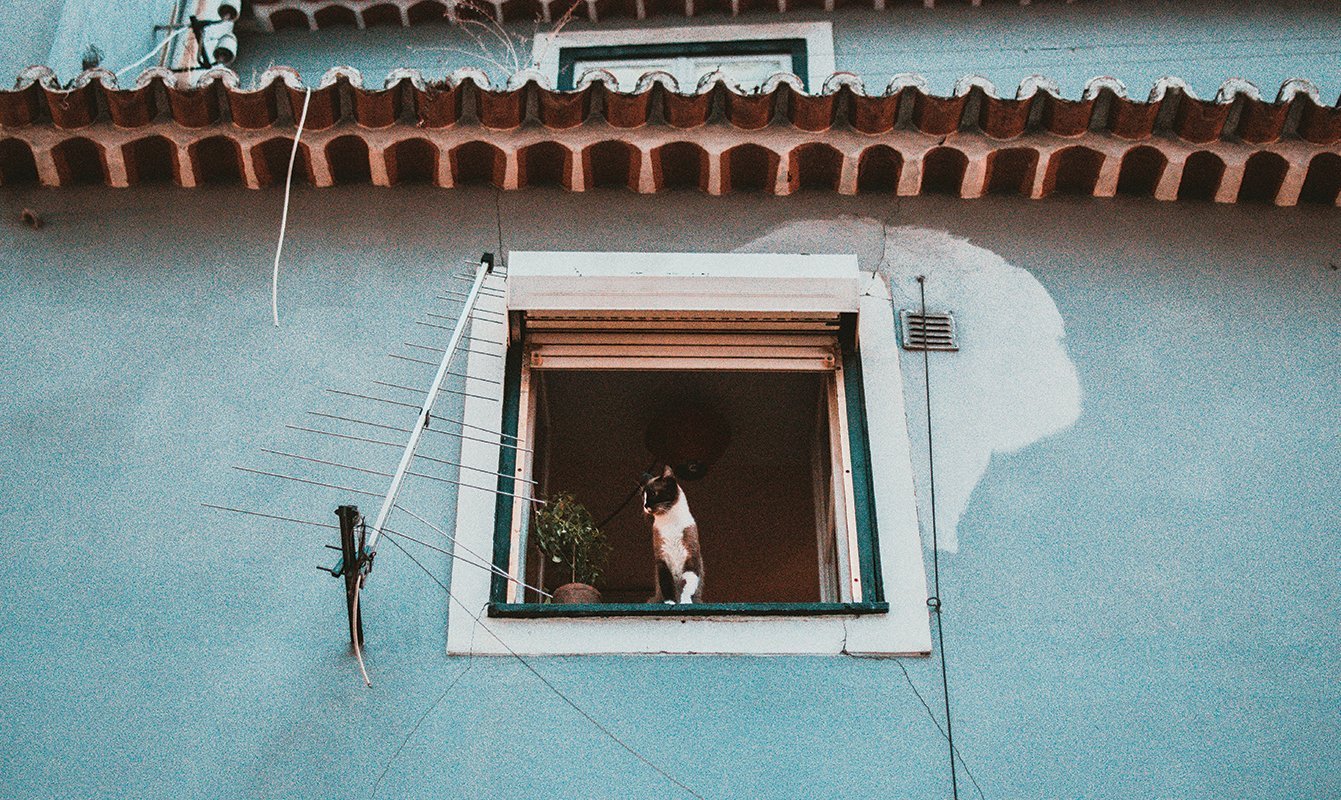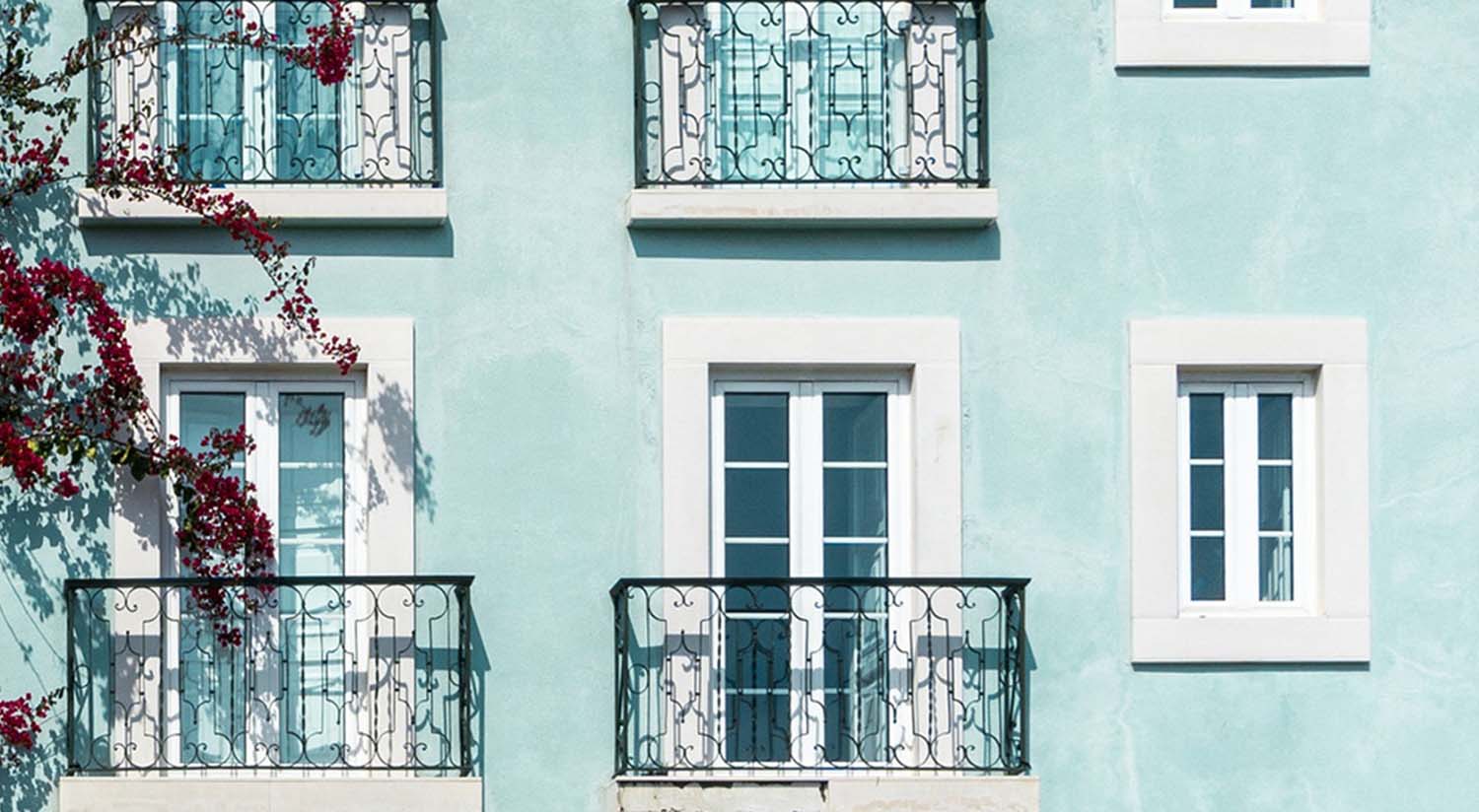11 Things I Wish I Knew Before Moving to Portugal
In June 2020, in the midst of a global pandemic, my husband and I packed up our car to the brim and drove for 3 days, crossing Belgium, France, and Spain, to ultimately land in Trafaria, Portugal. And although I love living here, there are a couple of things I wish I knew before moving to Portugal.
If you didn’t know, Trafaria is a small fishing town right across the April 25th bridge known for its delicious local seafood restaurants.
There are a number of reasons why moving to Portugal was the best decision I’ve ever made. Although I must say, in my younger years I always dreamed of living in Spain, Barcelona to be exact.
After moving to Brazil, learning Portuguese, and marrying a Brazilian man, it seemed like Portugal would be the obvious next step for us. However, I soon learned that this beautiful country is not without its own little quirks. What quirks, you may ask?
Well, let’s get into what I wish I knew before moving to Portugal.
11. The Water is Cold, And You’ll Probably Won’t Get Used To It
I think the biggest disappointment I have had here in Portugal is the fact that the water is ICE cold. How cold? Well, once in Cascais, I got 🧠🥶 brain freeze after dunking myself in the water.
This means that if you LOVE water sports, like surfing, kite-surfing, or scuba diving, then you’ll be needing a wet suit. Usually, for surfing, you’ll need a 5mm wetsuit, and for scuba diving, you’ll need a 7mm wetsuit or even a dry suit. I went diving in July in Sesimbra, and the temperature was approximately 14 degrees Celsius.
The water is actually a little warmer in the Algarve (and around the islands), but once you hit Lisbon and go up, it only gets colder.
10. Central Heating Is Rare
When I was living in Santiago, Chile, I experienced, for the first time, housing without heating. It was awful. My apartments in Chile were heated with a gas heater that would only heat up specific rooms. If I wanted to go into the bathroom or the kitchen, I had to “pre-heat” that room, so it wasn’t freezing cold. I told myself never again.
Unfortunately, never again was not an option.
Many of the houses and apartments in Lisbon (and in Portugal in general) do not have central heating. Our first apartment in Campo de Ourique had no heating whatsoever. So when winter came rolling in, we had to buy electric heaters that I would run constantly. I’ll be honest; the winter was not too bad, but be ready to face the cold.
Some properties come with air conditioners, but they usually come with high electricity bills as electricity is expensive in Portugal. If you are looking to cut costs, look for properties with a fireplace or invest in a pellet heater.
In the end, winter is only 3 months, so you’ll only have to be cold for a little while before summer comes around, and you forget all about the cold. But I really wish I knew about how bad the heating is before moving to Portugal – I guess it’s something I need to live with.
9. Watch out for the Mold
A lot of the buildings, especially the older ones in Portugal, lack proper insulation in the external walls. This, paired with dampness and humidity, makes for the perfect environment for mold. Black mold, one of the worst types of mold, is quite common during the wintertime.
When I lived in Campo de Ourique, we lived on the ground floor, and most of the mold formed right underneath our windows. We had to clean the mold every two weeks as it kept coming back. We ended up moving after six months, but if you do find mold in your apartment, then I would recommend investing in a good dehumidifier.
8. Get a Dryer
Yes, yes, why buy a dryer when you can hang your clothes outside of your window and let the sun dry them? You are absolutely right, but what about during the wintertime?
Remember, cold plus dampness means that it is almost impossible for your clothes to dry during the wintertime. The problem is that the dampness is not only outside your apartment but also inside. So it takes forever for clothes to dry, and when they do, they have that damp smell that no one really likes.
7. Bureaucracy takes time and patience
It is definitely harder to get things done in Portugal. It is a country plagued by bureaucracy. But that doesn’t mean that you can’t get things done. It just takes time and a lot of patience. Let’s also be clear. Bureaucracy is a nightmare in a lot of places. For example, living in Belgium, I faced many of the same problems as I did in Portugal, so this isn’t something new.
Most places, especially government officials, do not speak English unless it is in a central location like downtown Lisbon. So if you find yourself in a situation where the official doesn’t speak any English, it would be wise to try and bring a translator with you to help.
My recommendation is to physically go to these offices. Many people do not answer emails or phone calls, so it is better to speak with someone in person—if you can. In one of the foreigner groups, someone said they had been trying to call a number for hours upon hours, and no one was picking up. Go to the office.
Also, a word of caution for anyone looking to hire companies to do things for you — there are a lot of people out there charging ridiculous prices for simple things. No, a NIF number should not cost €100 euros for you to get. 99% of these relocation places are charging too much for incredibly simple things, so don’t be fooled.
6. Customer service is tricky
Ahh, customer service in Portugal. I have to say, I’ve had some really nice experiences in Portugal and some of the worst experiences of my life. It’s really a toss-up. In fact, most of the worst customer service experiences I have had have been in touristy places.
I actually love going to small local places, as I find that the people there are amazing and incredibly kind. They end up giving you a lot of attention and recommend the best things to eat and drink. I tend to try and avoid the “trendy” (aka tourist) places as these are the ones that I often have the worst experience with.
5. Consistency is a problem
Have you ever had a restaurant that serves your favorite dish? You probably end up going there a couple of times a year to eat that dish, and each time it is as delicious as the last. Well, I’ve found that in Portugal, that dish tends to change depending on the day.
I have to admit it has caused some frustration. I remember living in Campo de Ourique, and there was this french bakery there that served delicious almond croissants that I fell in love with. I bought two, and then I came back four separate times to buy more and they never had them. I’ve also walked to stores that were supposed to open at a certain time but were never open and places where I ordered a dish that I LOVE one day only to order it again and be incredibly disappointed.
If you are the type of person that loves things done the same way over and over again, you might find yourself a little bit frustrated in Portugal as things are never exactly the same.
4. Rent Can Be Expensive, BUT the Cost of Living Can Be Low
One of the biggest expenses you will probably have in Portugal is rent, especially if you want to live in Lisbon or Porto. Lisbon is a very expensive city, so if you plan on moving there, then be prepared for high rent costs.
For example, if you are looking for a one-bedroom apartment in Campo de Ourique, the cost can be around €1,000 euros or more — this doesn’t include utilities.
If you are looking to cut costs, then you can always rent a bedroom in a shared flat, which will probably cost you around €450 – €550 depending on the area.
Rent is also expensive in other major cities like Porto. However, if you want to cut your costs and you don’t mind living a little farther away, then there are a lot of other cities that you can take a look at.
In the North, there is Braga. Then in the center, there is Tomar, Santarem, or Castelo Branco. There is also Evora in the Alentejo region. In the South, there are a lot of small towns near the coastline where you can live. Then there is also Madeira and the Azores, which both have beautiful weather all year round.
Let’s quickly address this trope that Portugal is not an expensive country to live in.
It is, and it is not. Living in Lisbon, I realized pretty quickly that things add up. Do you love getting facials? Going to restaurants? Drinking cocktails? Going shopping? Little by little all of these things combined make for a large monthly bill. For example, a facial at some spas in Campo de Ourique can cost €100 per treatment. I am always shocked by how expensive some things are in the city of Lisbon.
On the other hand, if you are looking for a slower pace of life and want to move to the countryside, then you are in luck. Rural houses here are much cheaper to buy than in most countries. In fact, you can buy land here for as little as 20,000 euros (sometimes even less). I have a couple of friends living in a small village around 20 minutes from Coimbra. They said that their cost of living is around 500-600 euros per month. If you want to live a little farther away from a city, then rent also drastically drops, but in these cases, it would be best to also have a car to get around in.
3. Buying Property is a process
There are A LOT of people out there that want to retire in Portugal. They want to buy their small piece of land where they can live out the rest of their days in peace and quiet. It’s a beautiful dream, but there are a couple of things that you should know.
First and foremost, as a foreigner, be prepared to put down a deposit of 25-35% to secure a location. Also, be very, and I mean, VERY careful in terms of the property types. A lot of foreigners buy land that is designated, for example, as agricultural land, and then they spend years and thousands of dollars trying to get the right paperwork so that they can start building their house. Each piece of land has specific paperwork.
🏠 🇵🇹 Have you ever dreamed about buying property in Portugal? I did, and I wrote an article about it: Buying Property In Portugal: A Complete Guide.
But once you do sign all the paperwork and get the keys, if you need to build or renovate the property, then that brings us to our next point.
2. Construction is a Minefield
Construction is hard and expensive, especially if you doing any construction work outside a major city. A friend of a friend who renovated property in Lisbon and in Tavira told me stories about the high cost of labor and the unreliability of workers. Sometimes they show up, and sometimes they don’t.
One thing I have experienced in Central Portugal is that tradespeople are in short supply, especially the good ones. So they end up being booked quickly. I once asked a carpenter if he could make a kitchen island for me, only to be informed that he was so busy that he only could do it in 9 months. So be prepared to wait it out.
1. Portugal is BEAUTIFUL
I am originally from Canada, and although I knew that Portugal existed, I don’t think I fully grasped its beauty. Portugal is much more than Lisbon, Porto, and the Algarve.
As I started to explore, I realized that you basically have everything you need within the borders of this country. In the south, you have the Algarve, which is absolutely stunning. There are a number of cities that you can explore, from Tavira (East) all the way to Sagres (West). There is the Alentejo Region, which is known for its landscapes, food, and wine.
Central and North Portugal are often overlooked, as travelers tend to head over to the Algarve, especially during the summer season. But these regions are full of things to do. In fact, if you love eco-tourism, camping, hiking, or swimming through waterfalls, then this region is for you. Also, did we mention wine? These regions are also famous for their wines.
So what do you love doing? Eating? Drinking wine? Cycling? Horseback riding? Surfing? Hiking? Well, Portugal has something for you, and that is what makes it so magical.
One extra thing I wish I knew before moving to Portugal
Are you a fan of fish? No? Well, then, you need to jump on that bandwagon if you plan on moving here. Portugal is the country of seafood. Yes, there are meat options, but most restaurants, especially traditional Portuguese restaurants, serve a variety of fresh catch of the day.
⭐️ Want to learn more truths about living in Portugal from another expat’s experience? Read the Baxley’s experience here.
I am still warming myself up to eating fish, but I have to say that I love eating lobster and shrimp, so I am about halfway there.
And there you have it, the top things I wish I knew before moving to Portugal. Do you have any questions? Or maybe I missed something, let me know in the comments!




I’m a Norwegian and Finnish citizen and I have lived several years in Portugal, in Viseu, to be exact, and I found your information to be exact; except for one thing; fish. I’m a fish allergic myself, but have no problems finding good food at restaurants – in the interior, that is. Viseu might be special with an abundance of restaurants of all categories, but you can easily find a good dish with meat. Along the coast it’s different, although it’s better than it was the first time I visited in 1993 and also when I moved there in 1999.
As for heating, I use to tell people that I’ve never been freezing as much as since when I moved to southern Europe – and I’m from the Arctic part of Norway! Go figure.
I am an Irish citizen. I moved to Portugal in 2016. The worst mistake of my life. There is no effective legal remedy if things go wrong. I have been living at secret addresses since March to preserve my safety. The last 2 years of my life have been the worst, most grotesque experience.
We are thinking of moving to rural portugal with our horse and dogs. We live in exmoor national park uk – can you suggest an area in portugal with great trail riding? Or suggest a way i might find this out. Thank you so much!
I would say Alentejo and Ribatejo, the region east of Lisbon along the Tejo river. The city of Golegã prouds herself of being the portuguese Capital of the Horse, with maybe the biggest anual horse fair in the country, for instance, or Santarém near by with the biggest agricultural fair, both main breeding grounds for the Pure Blood Lusitano, our most famous national horse. Those are maybe the most famous horse regions, with ancient equestrian traditions and more plain landscape, but there are equestrian centers and trails a bit all over, specially in the Algarve, the west coast (north of Lisbon) or Minho (north of Porto).
Good article and spot on, makes me sad as a Portuguese, it’s also our burden, specially for those of us trying to make things differently… The “good things” list is obviously bigger 🙂 we just came up as the seventh safest country in the world, for instance, and that’s priceless, but it’s important to be realistic when considering a serious move.